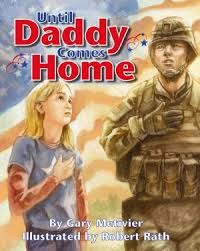When the Magic
Happens
I was supposed to see the Rocky Mountains for the first time
yesterday. My train was supposed roll into Rocky Mountain country between 6:45
and 7:30 pm. We were supposed to cross the trestlework bridge, and I was
supposed to see those snow-capped peaks reflecting the reds and purples of the
setting sun, just like the picture on Amtrak’s website.
When we crossed into Montana from North Dakota at 3:00 pm, I checked the train schedule. We were running three hours late. At sunset, we were still moving through the Montana prairie. We wouldn’t reach the mountains until the middle of the night. And by the time the sun would rise the next morning, the mountains would be far behind us. I was going to miss the Rockies completely.
I keep expecting life to happen according to my plans. And when circumstances don’t turn out as I expect, I get frustrated. This happens with mountains as well as writing. And while frustration about not seeing some mountains may lead to a few hours of grumpiness, frustration in my writing process can lead to paralysis.
I sometimes feel that my writing success on any given day is due to chance. Some days the writing just seems to flow. Other days, I find myself unable to write anything. But when I analyze these two types of days, I see that the differences are not due to chance at all. My success or failure is directly related to expectations I bring to the chair. If I’m holding tightly to an expectation of accomplishing a certain goal, I almost always find myself struggling for every word. But if I come to the chair with my only expectation being that I’m going to spend some time there writing, I find much more success.
My train finally rolled into Rocky Mountain country at 11:00 pm. By this time, my grumpiness had passed. I had come to terms with the fact that I wouldn’t be seeing the Rockies. So, not really expecting anything, I looked out the window. It was near pitch black, and at first, I didn’t see anything. But after my eyes had time to adjust, I could see the faint outlines of mountainous shapes in the distance. It wasn’t the grand moment I thought it would be, but I felt thankful I’d gotten a glimpse of the mountains at all. I continued staring out the window in awe of the immensity that I couldn’t quite see but that I knew was surrounding me at that very moment.
A few minutes later, the clouds broke, revealing a perfectly full moon. She shined her light across the frozen landscape, and there were the Rockies, not just snow capped, but snow covered in all their winter glory. We crossed that trestlework bridge, its moonlit shadow falling across the snow-dusted pines in the valley, while frothy clouds hovered over the mountain peaks in the distance. It was beautiful and magical and not at all like I had planned it to be. It was so much better.
Just like my moment in the mountains, I’ve found that my best writing can’t be planned. It seems to come like a gift when I least expect it. And that’s really the point, that I don’t expect it at all. When I can go to the chair and just write, with thankfulness for what little I can see and awe for the yet-to-be-seen immensity that I know is there, that’s when the magic happens.
***
Mandy Davis is a July
2011 graduate of the MFAC program. She lives and writes in Minneapolis, MN.



